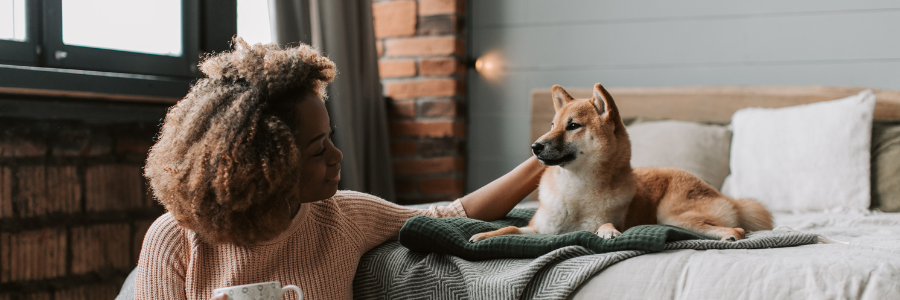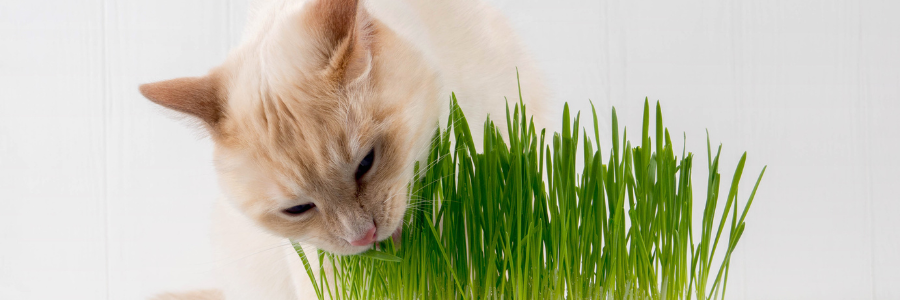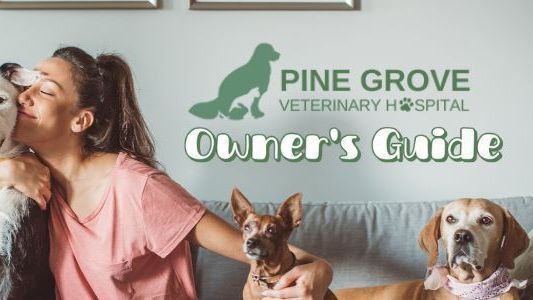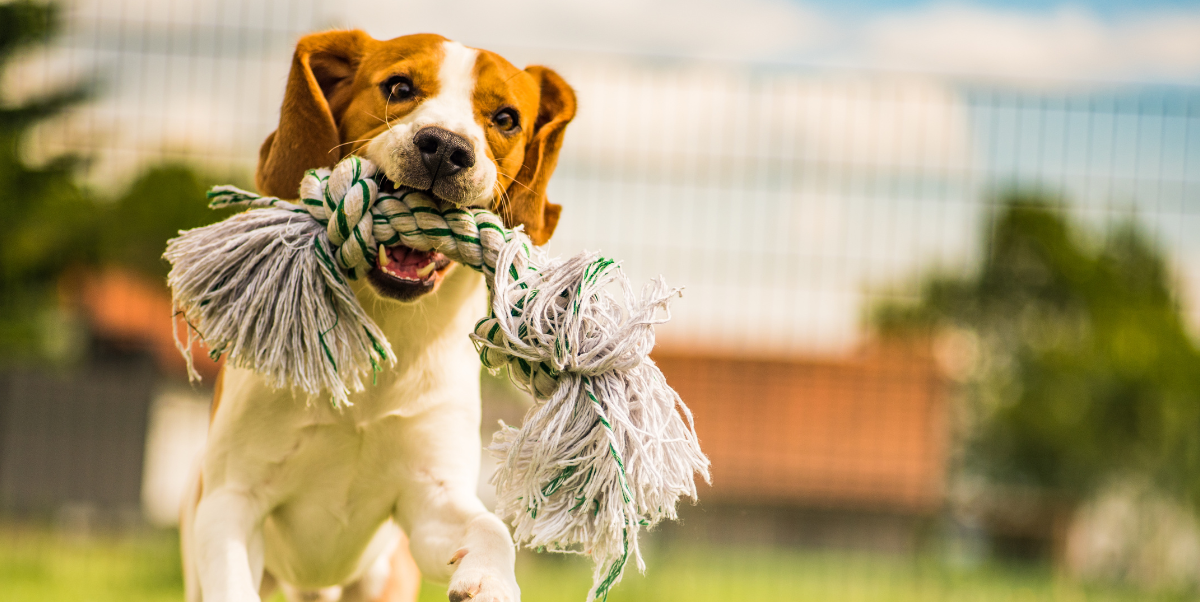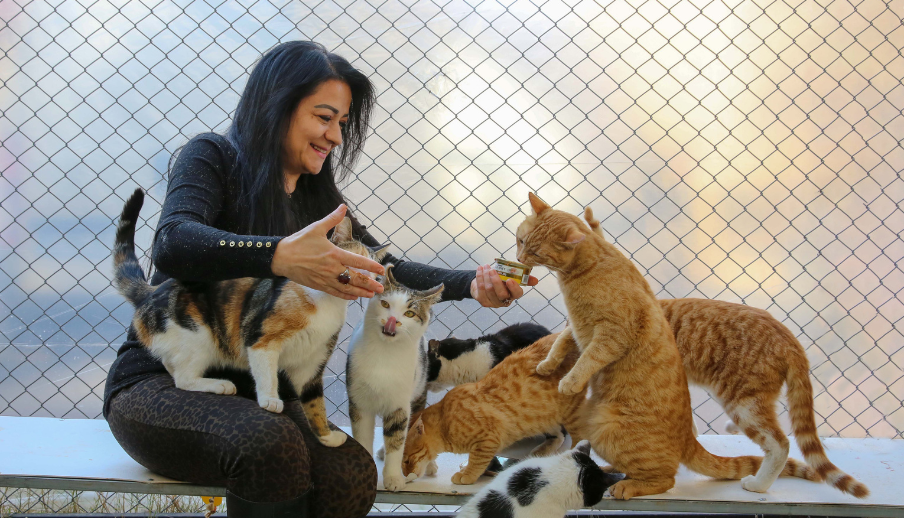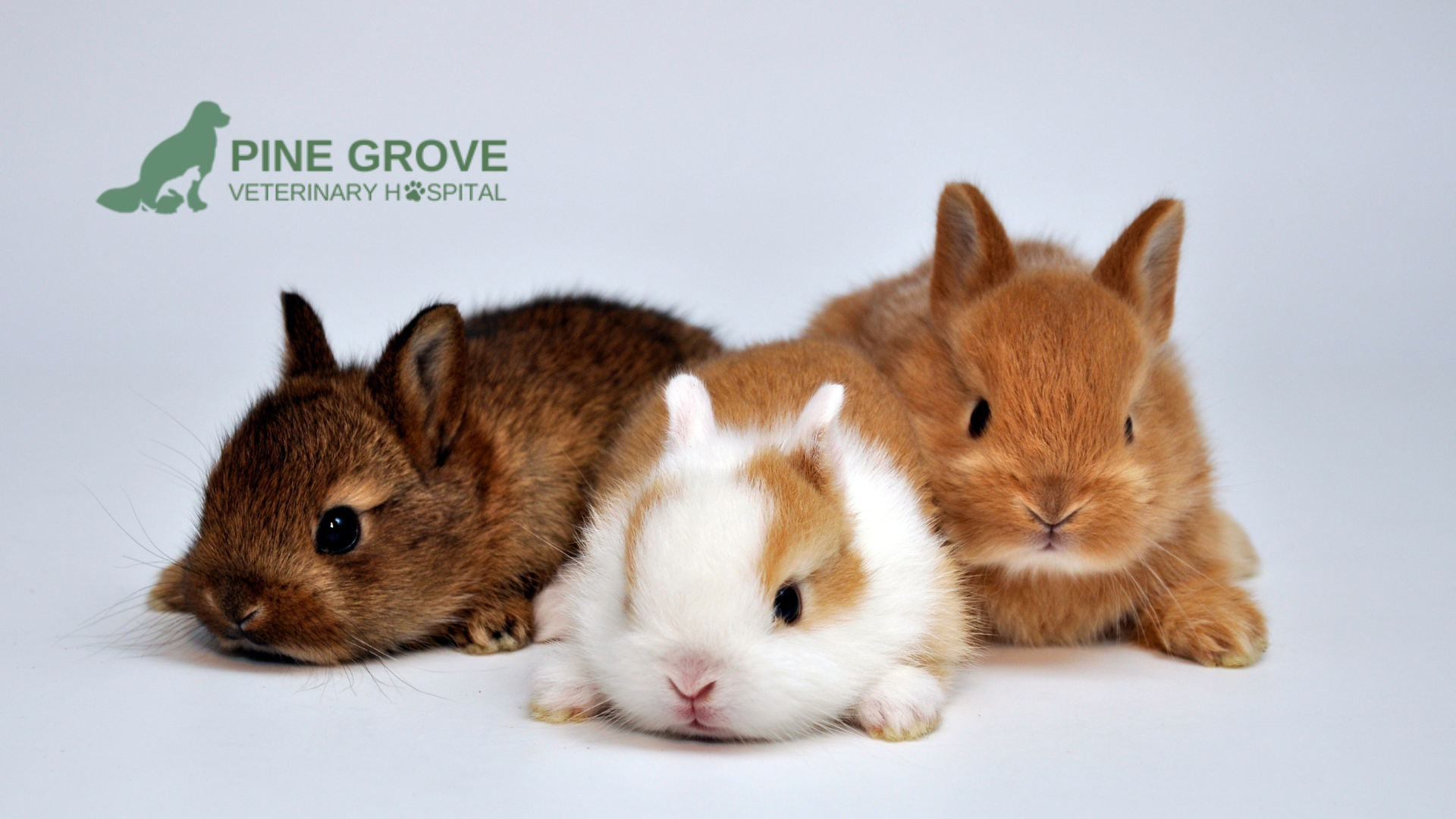Why Does My Dog Lick My Hands When I Pet Her?
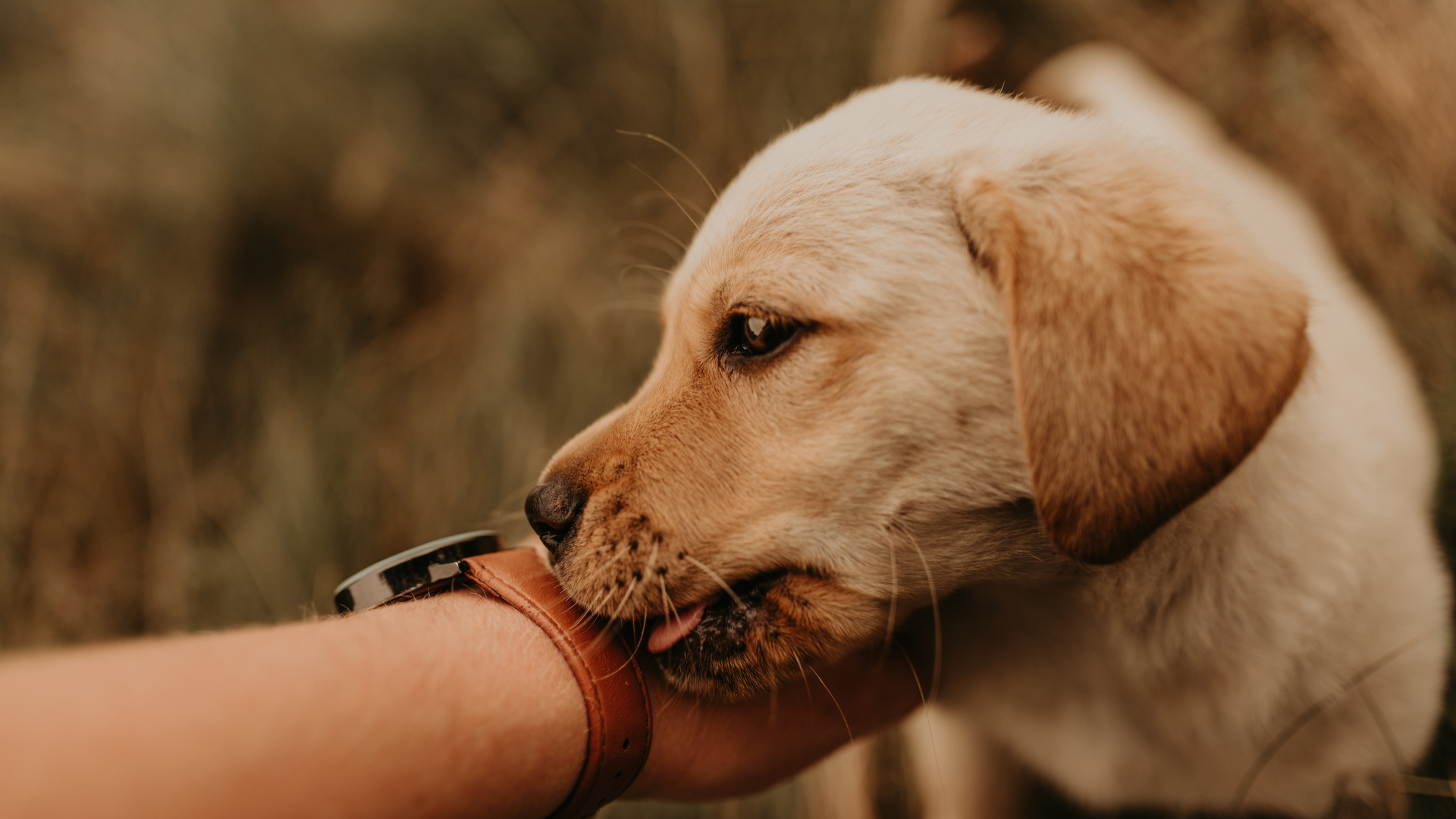
Understanding Canine Behavior: The Significance of Licking
Licking as a Form of Communication
Dogs often use licking as a primary means of communication with their human companions. When your dog licks your hands, it can be a sign of affection, a request for attention, or a way of interacting with you. Understanding the context and your dog's body language is key to interpreting what they are trying to convey.
At Pine Grove Veterinary, which offers Behaviour Management and Medical Services, professionals understand that licking is more than just a simple gesture. It's a complex behavior that can vary in meaning based on several factors:
- The situation or environment
- The presence of food or novel scents
- The dog's emotional state
It's important to note that excessive or compulsive licking may require attention from a vet, such as the experts at Pine Grove Veterinary in Orillia. This behavior could be indicative of underlying issues that may need to be addressed through Behaviour Management or Medical Services.
If you're concerned about your dog's licking habits or if it becomes bothersome, consulting with an Orillia vet can provide insights into your dog's health and well-being. They can help determine if the licking is a benign form of communication or if it's something that requires further investigation.
The Role of Licking in Canine Social Structures
In the intricate tapestry of canine social structures, licking plays a pivotal role, often serving as a submissive gesture that maintains harmony within the pack. Dogs lick to show respect and deference to more dominant pack members, which in a domestic setting, can include their human companions. This behavior is deeply ingrained and can be observed in puppies as they lick their mother's face to solicit food or attention.
At Pine Grove Veterinary, understanding such behaviors is crucial for effective Behaviour Management, ensuring that the bond between you and your pet remains strong and healthy. The medical Services provided by Pine Grove Veterinary also include addressing any issues that may arise from or influence licking behaviors, such as anxiety or skin conditions.
- Licking to show affection or submission
- Licking as a request for food or attention
- Licking to groom and care for other pack members
It's important to recognize that while licking is a natural and often positive behavior, it should be monitored to maintain both your pet's and your own health and well-being. If you notice excessive licking, it may be time to consult with an orillia vet to rule out any underlying health concerns.
Interpreting Lick Intensity and Frequency
The behavior of a dog licking its owner's hands can vary greatly in intensity and frequency, and understanding these variations is key to interpreting your pet's needs and emotions. High-frequency licking may indicate a desire for attention or food, while a gentle, less frequent lick could be a sign of affection or contentment. It's important to observe the context in which your dog licks, as this behavior can also be a soothing mechanism during stressful situations.
- High-frequency licking: Attention-seeking, hunger, or anxiety
- Gentle licking: Affection, contentment, or greeting
- Intense licking: Overstimulation or discomfort
When assessing your dog's licking behavior, consider the possibility of underlying health issues. Excessive licking, for instance, could signal pain or discomfort that may require professional assessment from a veterinary service like Pine Grove Veterinary, which offers Behaviour Management and Medical Services.
If you're concerned about the intensity or frequency of your dog's licking, consulting with an Orillia vet can provide insights into whether this behavior is part of normal canine communication or if it might be indicative of a health or behavioral issue. Pine Grove Veterinary can assist in both understanding and managing your dog's licking habits through their Behaviour Management and Medical Services.
The Science Behind Licking: Sensory and Hormonal Responses
Taste and Texture: Sensory Stimulation Through Licking
Dogs experience the world largely through their senses, and the act of licking provides a wealth of sensory stimulation. The texture and taste of human skin can be intriguing to dogs, as it carries the unique flavors of sweat, oils, and traces of everything we've touched. Licking is a way for dogs to explore their environment and the people in it.
For those seeking professional advice on their dog's licking behavior, Pine Grove Veterinary in Orillia offers Behaviour Management services. Their expertise can help determine if your dog's licking is a harmless habit or a sign of underlying issues.
- Sensory Exploration: Dogs gather information about their owners through licking.
- Taste Detection: Can detect minute traces of food or other interesting substances.
- Texture Response: Different textures can trigger more frequent licking.
It's important to understand that while licking is a natural and often affectionate behavior, it can sometimes be excessive. If you're concerned about your dog's licking habits, consulting with a vet, such as the professionals at Pine Grove Veterinary, can provide peace of mind. They offer comprehensive medical Services to address any health-related causes of excessive licking.
Oxytocin Release: The 'Love Hormone' Connection
When your dog licks your hands, a complex hormonal response is triggered within both of you. Oxytocin, often referred to as the 'love hormone', is released, fostering a sense of bonding and trust. This hormone plays a crucial role in strengthening the social bonds between dogs and their owners.
The act of licking can be both a cause and a result of oxytocin release, creating a feedback loop that enhances the emotional connection.
Understanding this physiological response can be essential for pet owners seeking to manage their dog's behavior. Services such as Behaviour Management offered by Pine Grove Veterinary can provide insights into how to nurture this bond responsibly while ensuring the well-being of both pet and owner. Additionally, medical Services can address any underlying health issues that may manifest through excessive licking.
For those in Orillia seeking professional guidance, the Orillia vet at Pine Grove Veterinary can assist in both understanding and managing your dog's licking behavior, ensuring a healthy balance is maintained.
Licking as a Stress-Relief Mechanism
Dogs often resort to licking as a natural stress-relief mechanism. When your dog licks your hands, it may be an attempt to alleviate feelings of anxiety or discomfort. The act of licking can trigger the release of endorphins, which are hormones that promote feelings of pleasure and calmness in dogs, much like they do in humans.
In the context of stress relief, it's important to recognize when licking is a sign of underlying anxiety. If you're concerned about your dog's stress levels and licking habits, consulting with a professional at Pine Grove Veterinary for Behaviour Management and Medical Services can provide tailored solutions. An Orillia vet can help determine if your dog's licking is a behavioral issue or a symptom of a medical condition.
- Behavior Management: Identifying triggers and creating a calming environment.
- Medical Services: Assessing for health issues that may cause stress.
By understanding the reasons behind your dog's licking, you can better manage their stress and contribute to their overall well-being. Remember, while licking is a normal canine behavior, excessive licking may require professional attention.
Health and Hygiene Considerations for Dog Licking
Understanding Zoonotic Risks
When your dog licks your hands, it's important to be aware of the potential for zoonotic risks. Zoonotic diseases are those that can be transmitted from animals to humans, and while the risk is generally low, it's not negligible. Proper hygiene practices are essential to minimize any potential transmission of bacteria or parasites that could be present in your dog's saliva.
- Always wash your hands thoroughly with soap and water after being licked.
- Avoid letting your dog lick any open wounds or near your face and mouth.
- Be aware of your dog's health and any signs of illness that could increase the risk of zoonosis.
If you have concerns about your dog's licking behavior and the potential health risks, consulting with a professional is advisable. Pine Grove Veterinary offers comprehensive medical services, including Behaviour Management, to address such concerns. Remember, an Orillia vet can provide tailored advice and support to ensure both you and your pet remain healthy.
While dog licks are often a sign of affection, it's crucial to maintain a balance between enjoying this aspect of your bond and protecting your health.
Maintaining Hygiene After Being Licked
After enjoying the affectionate licks from your furry friend, it's important to maintain proper hygiene to ensure the health and safety of both you and your pet. Regularly washing the licked areas with soap and water is a simple yet effective method to remove any bacteria or debris transferred from your dog's mouth. Additionally, using an alcohol-based hand sanitizer can provide an extra layer of protection when soap and water are not readily available.
- Wash hands with soap and water for at least 20 seconds.
- Apply hand sanitizer if soap and water are unavailable.
- Avoid touching your face or food until hands are clean.
For those seeking professional guidance on pet hygiene and health, Pine Grove Veterinary offers comprehensive medical services, including Behaviour Management, to help you understand and manage your dog's licking behavior. If you're in the Orillia area and looking for a trusted orillia vet, consider reaching out to Pine Grove Veterinary for expert advice.
While occasional licking is normal, excessive licking can be a sign of underlying issues. It's crucial to monitor your dog's behavior and consult with a veterinarian if you notice any changes.
When Licking May Indicate a Health Issue
While dog licking is often a sign of affection or stress relief, it can sometimes be an indicator of underlying health issues. Persistent or excessive licking, particularly if focused on one area, may signal discomfort or pain in that region. It's crucial for pet owners to observe their dog's behavior and seek professional advice if they notice any concerning changes.
- Excessive licking of paws or skin can suggest allergies or dermatological issues.
- Licking of the air or surfaces may be a sign of gastrointestinal problems.
- Compulsive licking could be related to neurological disorders or anxiety.
If you're concerned about your dog's licking behavior, consulting with a professional is essential. Pine Grove Veterinary in Orillia offers comprehensive medical services, including behavior management, to address such issues. Their expertise can help determine whether your dog's licking is a quirky habit or a symptom requiring medical attention.
It's important to remember that not all licking is problematic, but any abrupt or intense changes in your pet's licking behavior warrant attention and possibly a visit to your Orillia vet.
Training and Managing Your Dog's Licking Behavior
Setting Boundaries: When Licking Is Appropriate
Establishing clear boundaries with your dog regarding when licking is acceptable is crucial for a harmonious relationship. It's important to teach your dog that licking is a privilege, not a right, and should be allowed only during appropriate times. For instance, you may permit your dog to lick your hands during a calm petting session but discourage it during meal times or when you have guests.
- Begin with clear commands such as 'No lick' when you want to stop the behavior.
- Reward your dog with treats or praise when they obey your command to stop licking.
- Consistency is key; ensure all family members follow the same rules regarding licking.
Behaviour Management is an essential aspect of training your dog to understand when licking is appropriate. Seeking professional advice from a reputable source such as Pine Grove Veterinary can be beneficial. They offer a range of services, including Behaviour Management and Medical Services, to help maintain your dog's health and well-being.
If you're concerned about your dog's licking behavior or it seems excessive, it may be time to consult with an Orillia vet. Pine Grove Veterinary can provide guidance and medical services to address any underlying issues that may be contributing to your dog's need to lick.
Training Techniques to Minimize Unwanted Licking
To effectively manage your dog's licking behavior, it is essential to employ consistent training techniques. Positive reinforcement is key; rewarding your dog for calm behavior and following commands can help redirect their licking tendencies. Here are some strategies:
- Establish a 'no lick' command and consistently enforce it.
- Distract your dog with toys or chewables during times they are likely to lick.
- Provide ample exercise to help reduce anxiety-driven licking.
Consistency in training is crucial for success. It's important to reinforce the desired behavior and discourage the unwanted without creating confusion or fear.
For those seeking professional guidance, Pine Grove Veterinary offers Behaviour Management services that can assist in developing a tailored approach to your dog's licking habits. Additionally, their medical Services can address any underlying health issues that may contribute to excessive licking. Remember, consulting with an orillia vet can provide valuable insights into your pet's specific needs and behaviors.
Recognizing and Responding to Overstimulation
Dogs can become overstimulated for a variety of reasons, such as excessive petting or exciting environments. Recognizing the signs of overstimulation is crucial for maintaining a calm and happy pet. Signs may include increased licking, panting, or restlessness. When these signs are observed, it's important to respond appropriately to help your dog regain composure.
- Step back and give your dog some space.
- Offer a quiet, safe place for your dog to relax.
- Use a calm voice to soothe your pet.
If your dog's licking behavior is persistent and seems to be a sign of stress or overstimulation, consulting with a professional may be beneficial. Pine Grove Veterinary offers Behaviour Management services that can help address these issues. Additionally, if the licking is accompanied by other symptoms, it may be time to seek Medical Services to rule out any underlying health concerns. Remember, an Orillia vet can provide valuable insight and assistance in managing your dog's well-being.
It's essential to understand your dog's body language and to react with patience and care when they show signs of overstimulation. By doing so, you can ensure a stronger bond and a more harmonious relationship with your canine companion.


